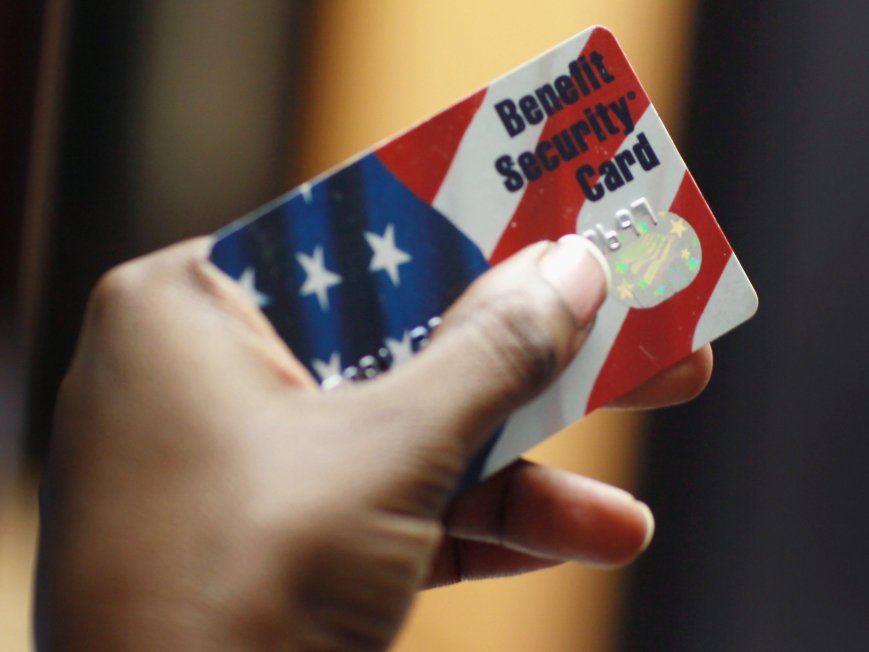
More than 2.2 million people have discontinued their participation in food stamps during President Trump’s first full year in office, according to the latest U.S. Department of Agriculture (USDA) data on food stamp enrollment.
The latest USDA data shows that since Trump’s first full month in office in February 2017—when food stamp enrollment was at 42,289,366— participation in the program decreased by 2,257,235 to 40,032,131.
If you asked most people, “Should food stamps be discontinued?” their answer would be: “Of course not. Are you crazy?”
Yet if you asked the same people, “Should charity be forced at gunpoint?” you would not get a universal “yes”.
This contradiction explains, in part, why fewer people on food stamps is good news.
Most will say, “The truly needy should have food stamps.” But how do you tell who’s truly needy and who isn’t? What criteria are rational? How are you to believe what people say? And how can you trust the government, of all entities, to answer these questions competently, assuming you even know the answers?
Many will assume it’s mean to reduce people’s ability to get food stamps. But what if you phrase it as fewer people being compelled to depend on government for their food? Particularly in an economy with unemployment going so low we may be close to full employment?
The United States has approximately 325 million people. For 42 million (or 40 million, under Trump) to be on food stamps suggests a real problem economically, if all of those people really need the food stamps. If 12 to 15 percent of Americans rely on food stamps in order to keep from starving, then we have an economic crisis on our hands at least as big as the Great Depression. On the other hand, if most of these people can survive without food stamps, then we have a serious moral, psychological and social crisis on our hands. Which one do you think it is, if you’re really honest and objective about it?
The welfare state should be phased out. Charity should not be compulsory. Charity means a lot more when it’s voluntary. Even a dysfunctional charity, on its worst day, can do a better job of discerning the truly needy from the moochers. Families, friends and neighbors are also in the best position to judge, far more than any bureaucratic worker for the state trying to implement some incomprehensible government formula.
Phasing out food stamps will not solve our massive budget deficits and spiraling national debt. But establishing the principle that charity shall no longer be compulsive will pave the way for all kinds of other government programs — including corporate and agricultural welfare — to go by the wayside as well. And it will better prepare us for the day of reckoning that will inevitably arise with Social Security and Medicare, two programs that will surely become welfare programs when there’s no longer enough money to cover everyone with them.
It’s kinder to get people off the government dole than to enable them to be permanently dependent on it. If you don’t understand this fact, then you’ve probably never been on welfare yourself, nor known anyone else who has.
Charity is much more charitable when delivered by people who really mean it.
Unfortunately, our Republican and Democratic establishment has used the food stamp program to foster dependence of the citizens on government, thereby ensuring they will rule forever. Kudos to President Trump for reversing that trend, at least for now.
Follow Dr. Hurd on Facebook. Search under “Michael Hurd” (Rehoboth Beach DE). Get up-to-the-minute postings, recommended articles and links, and engage in back-and-forth discussion with Dr. Hurd on topics of interest. Also follow Dr. Hurd on Twitter at @MichaelJHurd1, and see “Michael Hurd” on MeWe.
